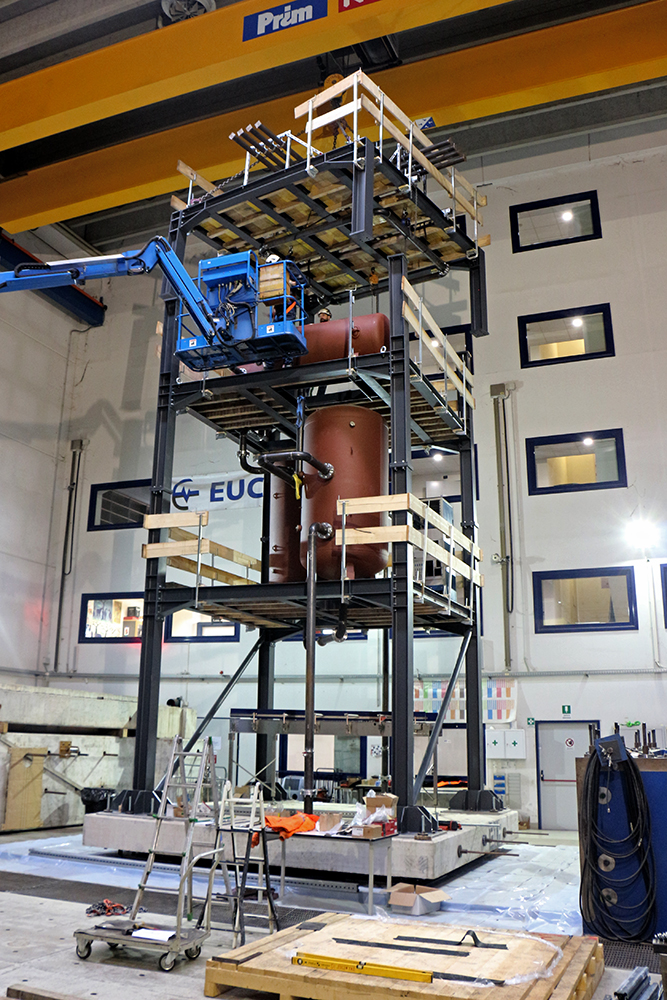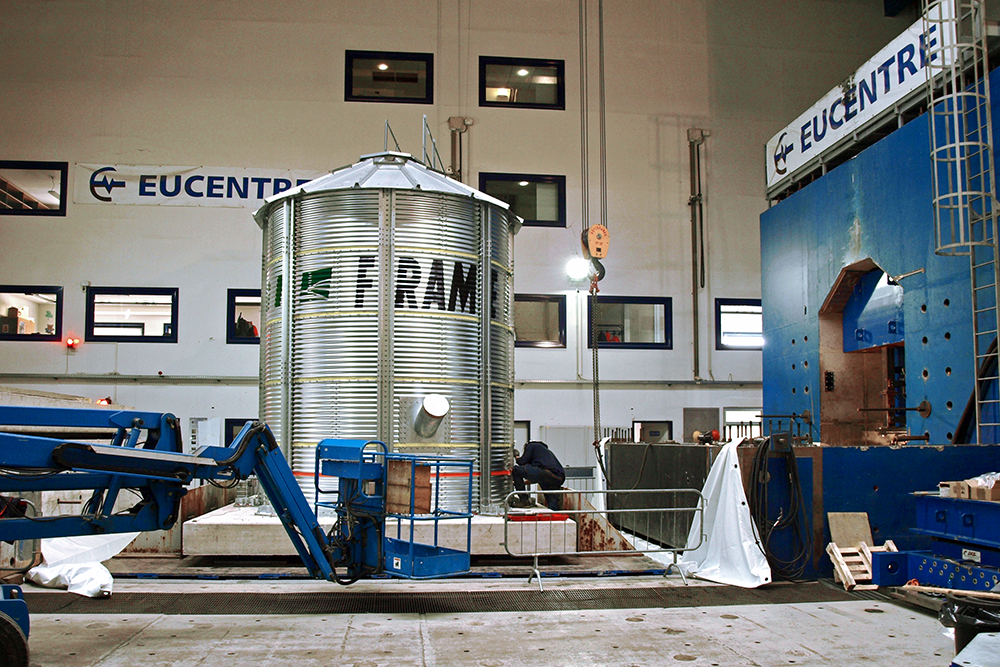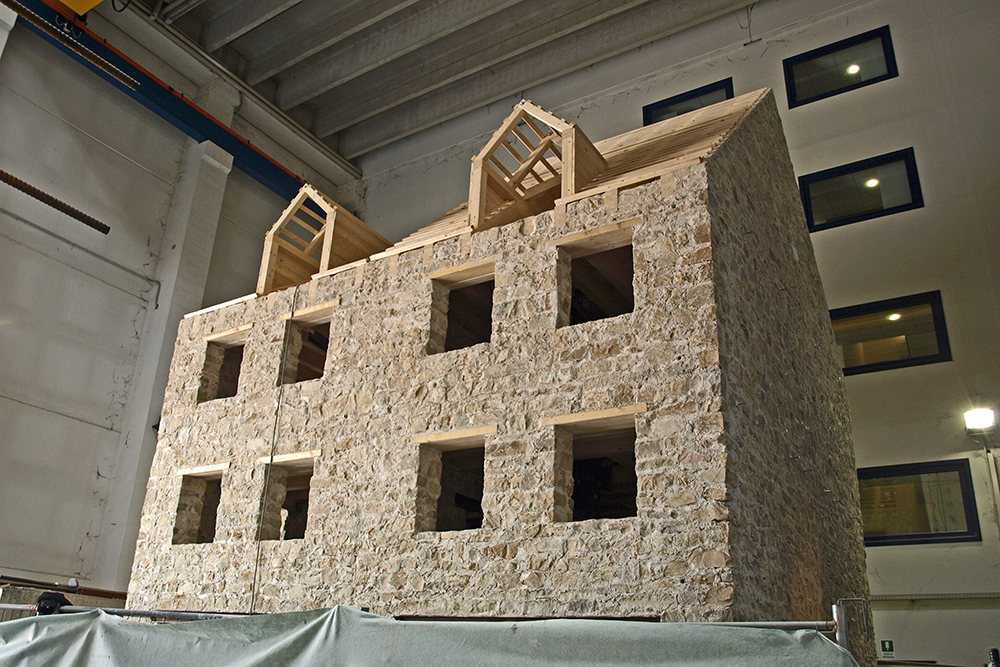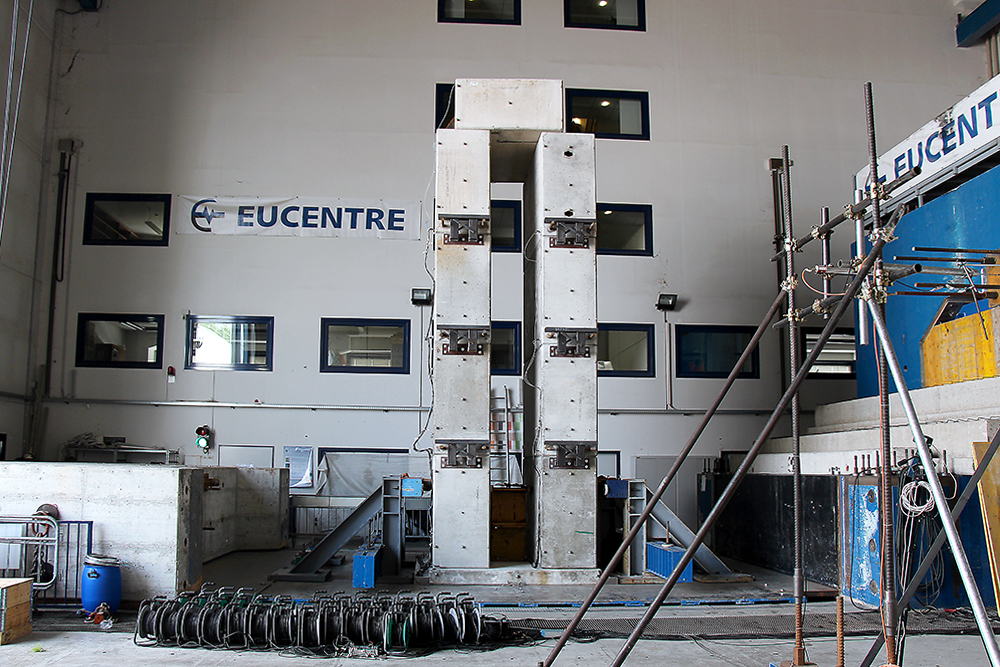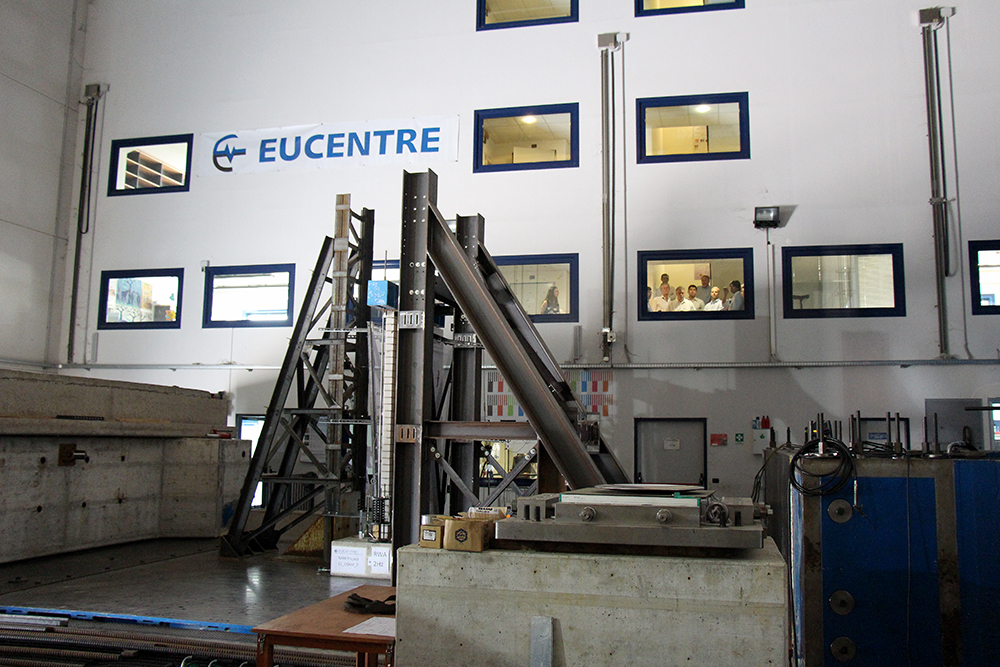Developing advanced experimental techniques is key to improving our understanding of structural behaviour and preventing risks related to natural events.
This project focuses on developing and applying new experimental techniques to study structures, components, and non-structural elements. The activity addresses companies, institutions and research organisations, offering them technical and scientific partnership to develop solutions that optimise performance and improve the reliability of results.
A key part of this work involves designing and constructing testing machines and laboratories dedicated to earthquake engineering, which makes a significant contribution to applied research and advances knowledge in this area.
For example, the Foundation can realise multi-degree-of-freedom vibrating tables, test systems for seismic dissipators and isolators, and mobile laboratories for in-situ testing.
EUCENTRE can provide complete turnkey solutions or support customers with some of the following activities:
- Structural design of the test equipment.
- Development and implementation of innovative solutions for handling and installing test specimens.
- Design and implementation of hydraulic and actuation systems (e.g. generators, pumps, accumulators, valves, piping and actuators).
- Design and implementation of hardware and software systems for acquiring measurement signals (e.g. from accelerometers, potentiometers and thermocouples) and for general system control.
- Installation and testing.
- Specific training.
We are also committed to training specialists and technicians through educational and experimental courses focused on studying and mitigating the effects of natural disasters.
Furthermore, EUCENTRE develops structural monitoring platforms for buildings, infrastructure and industrial plants that are optimised and customised according to customer requirements. These tools enable short- and long-term monitoring operations, integrating traditional electrical sensors (e.g. accelerometers and strain gauges) with the latest sensors based on wireless, fibre optic and/or satellite (GNSS) technologies as required. The acquired data is processed locally or in the cloud and used in numerical models to assess structural safety and provide useful intervention information.
 Eucentre is a non-profit private law foundation whose mission is to conduct research and provide training and services in earthquake and safety engineering
Eucentre is a non-profit private law foundation whose mission is to conduct research and provide training and services in earthquake and safety engineering  Eucentre promotes science, research and innovation for the benefit of the community, offering targeted methodologies and concrete solutions for prevention, safety and resilience. It collaborates with institutions and companies to disseminate competencies for the common good.
Eucentre promotes science, research and innovation for the benefit of the community, offering targeted methodologies and concrete solutions for prevention, safety and resilience. It collaborates with institutions and companies to disseminate competencies for the common good. Eucentre conducts earthquake engineering research and risk reduction studies via laboratory testing and numerical analysis to enhance seismic performance and develop innovative solutions
Eucentre conducts earthquake engineering research and risk reduction studies via laboratory testing and numerical analysis to enhance seismic performance and develop innovative solutions  Eucentre carries out research activities in earthquake engineering and risk reduction through laboratory testing and numerical analysis, aiming to improve the seismic performance of structures and soils and to develop innovative seismic retrofitting techniques.
Eucentre carries out research activities in earthquake engineering and risk reduction through laboratory testing and numerical analysis, aiming to improve the seismic performance of structures and soils and to develop innovative seismic retrofitting techniques. The Foundation promotes diverse and high-quality training activities aimed at academic and professional contexts, with constantly updated and innovative programs and initiatives designed to meet the evolving needs of the sector and society
The Foundation promotes diverse and high-quality training activities aimed at academic and professional contexts, with constantly updated and innovative programs and initiatives designed to meet the evolving needs of the sector and society  Eucentre ensures communication aimed at informing institutions, professionals, and citizens about ongoing activities and projects, with the goal of disseminating useful and accessible content and knowledge. It contributes to promoting a shared and informed culture of prevention and resilience.
Eucentre ensures communication aimed at informing institutions, professionals, and citizens about ongoing activities and projects, with the goal of disseminating useful and accessible content and knowledge. It contributes to promoting a shared and informed culture of prevention and resilience.
